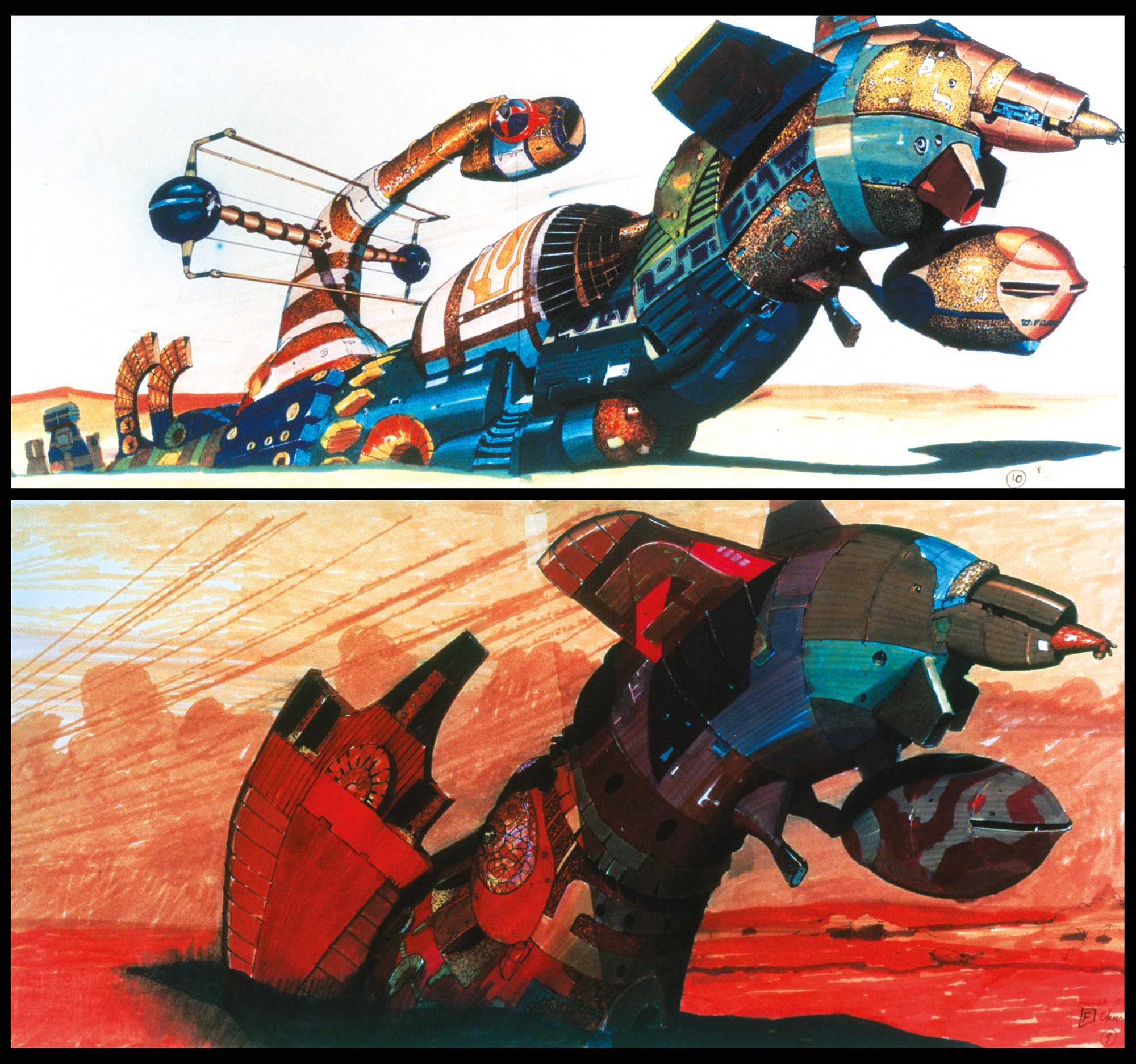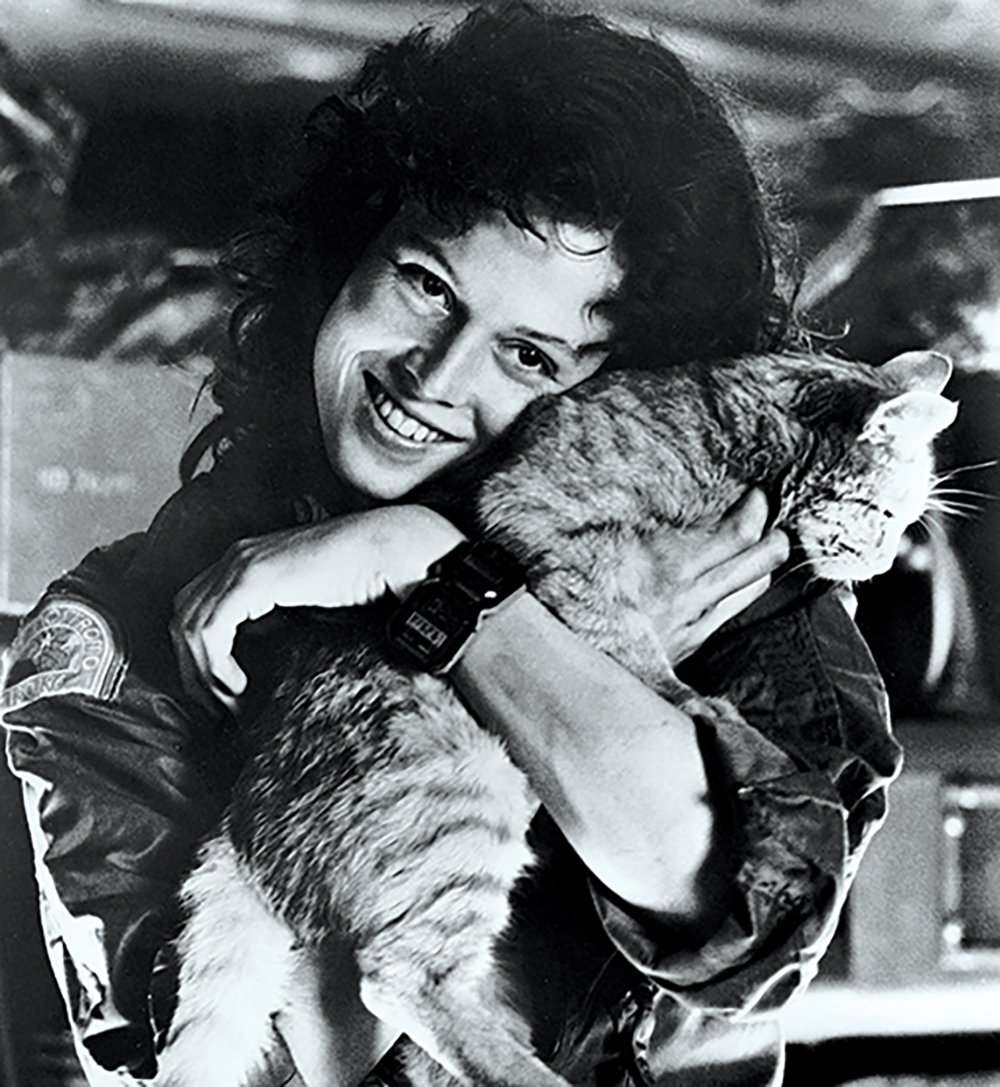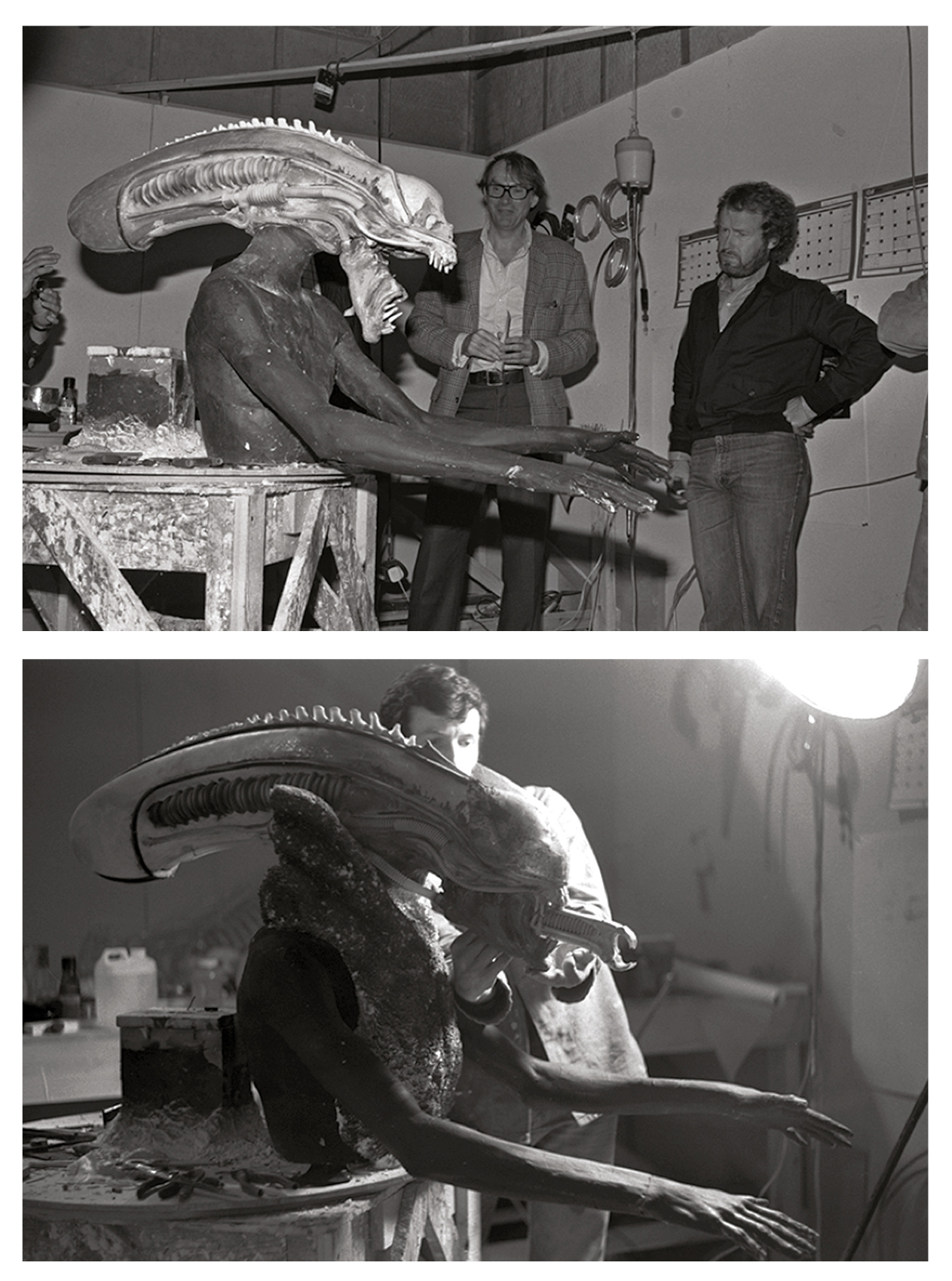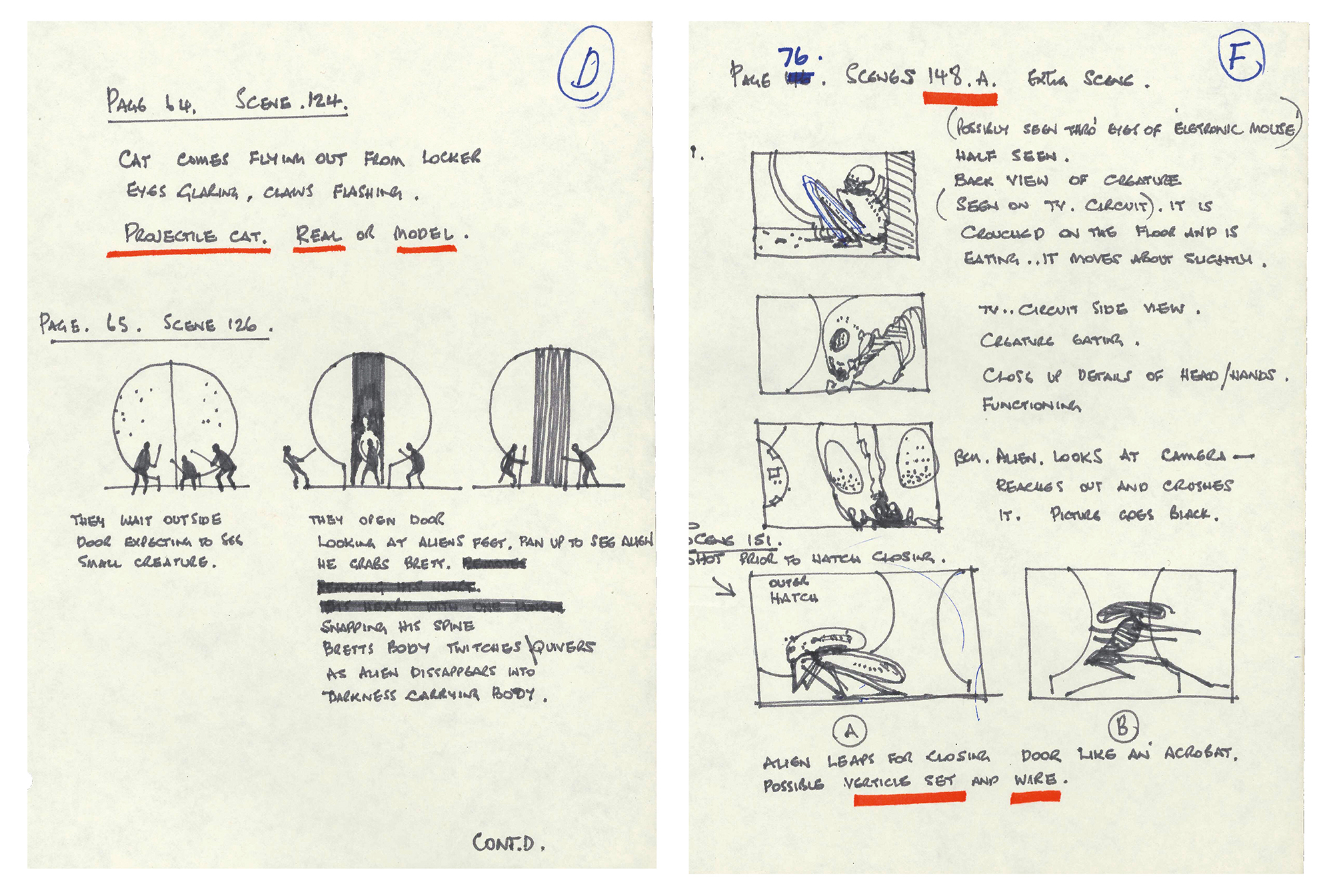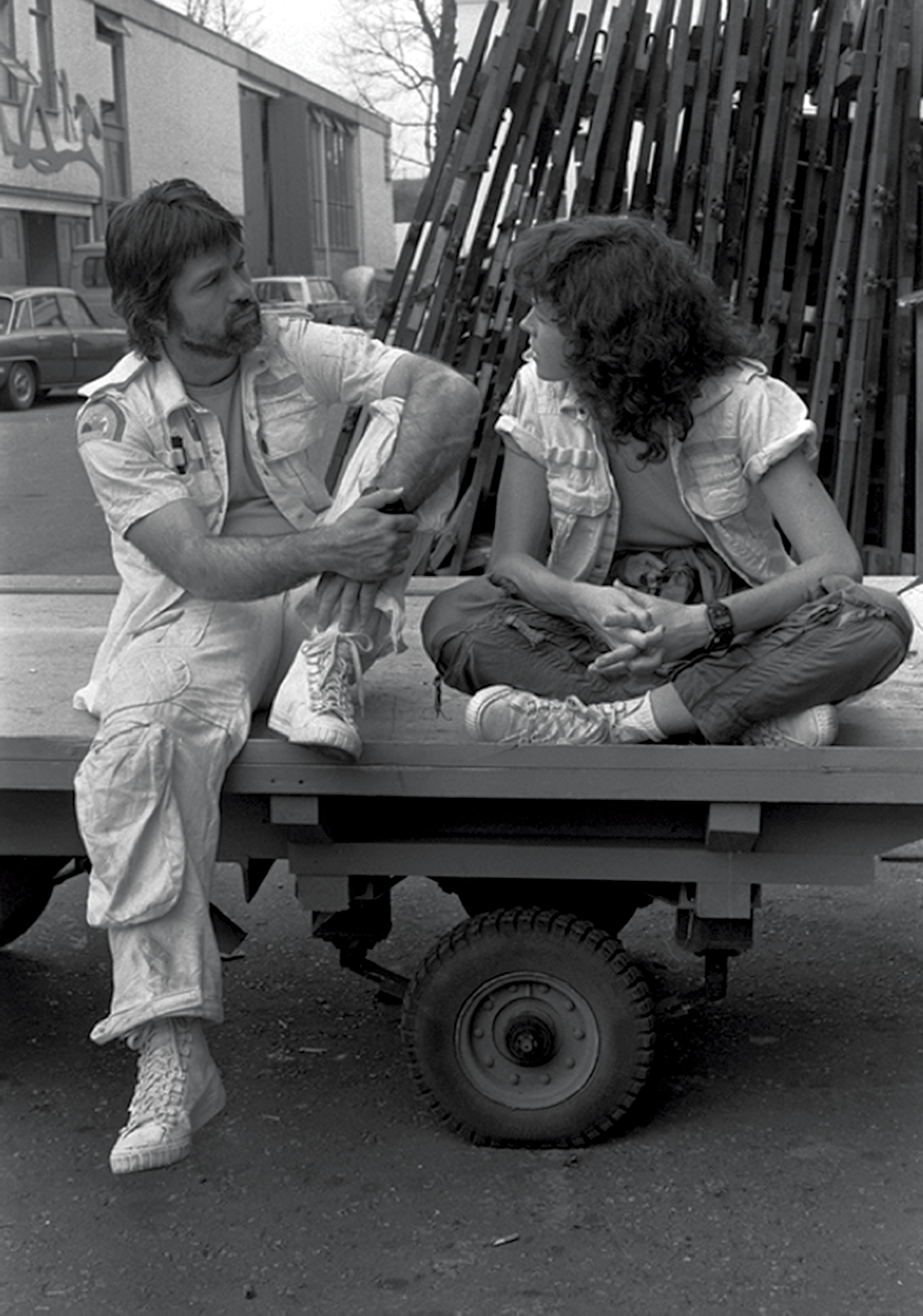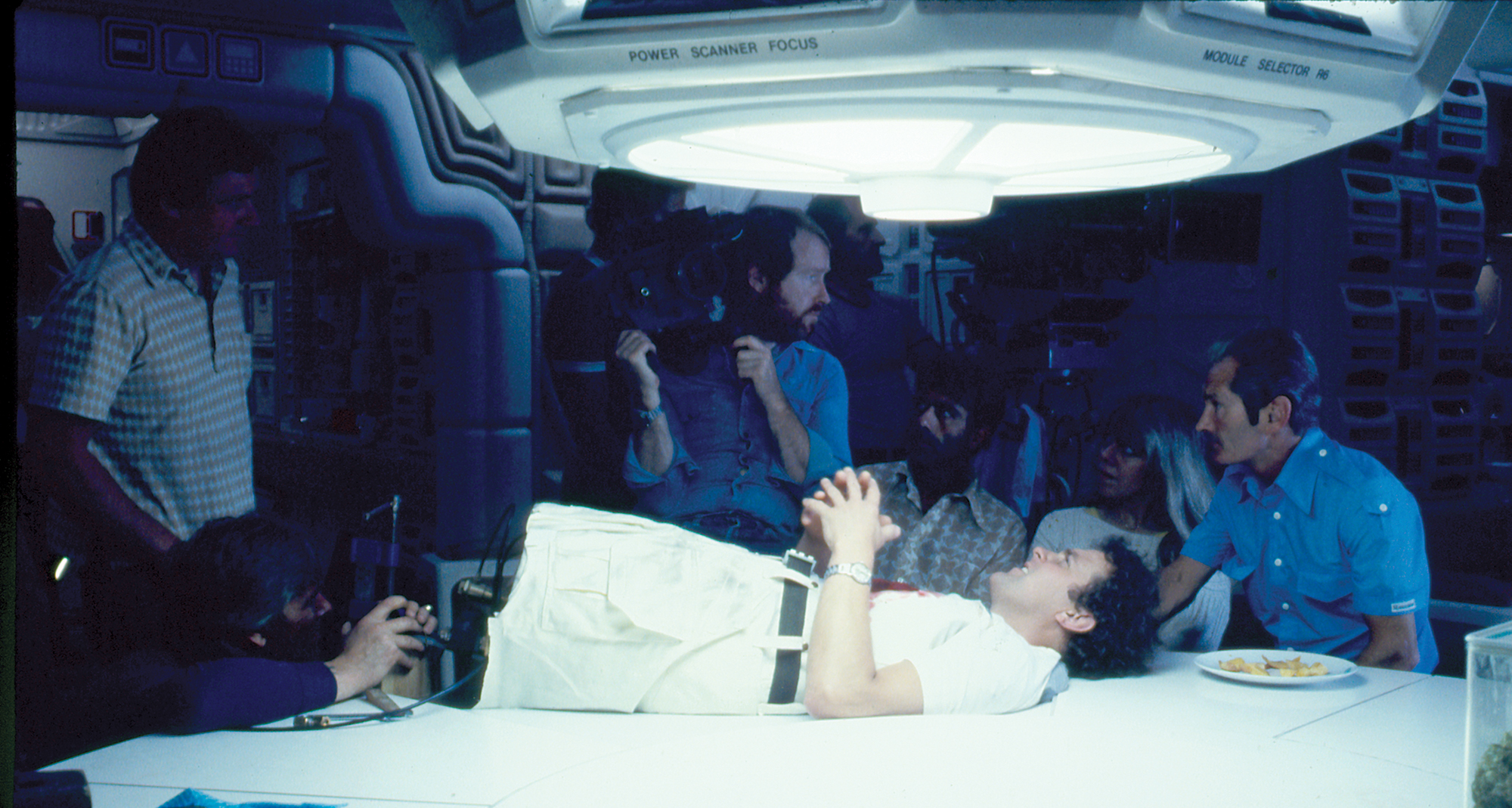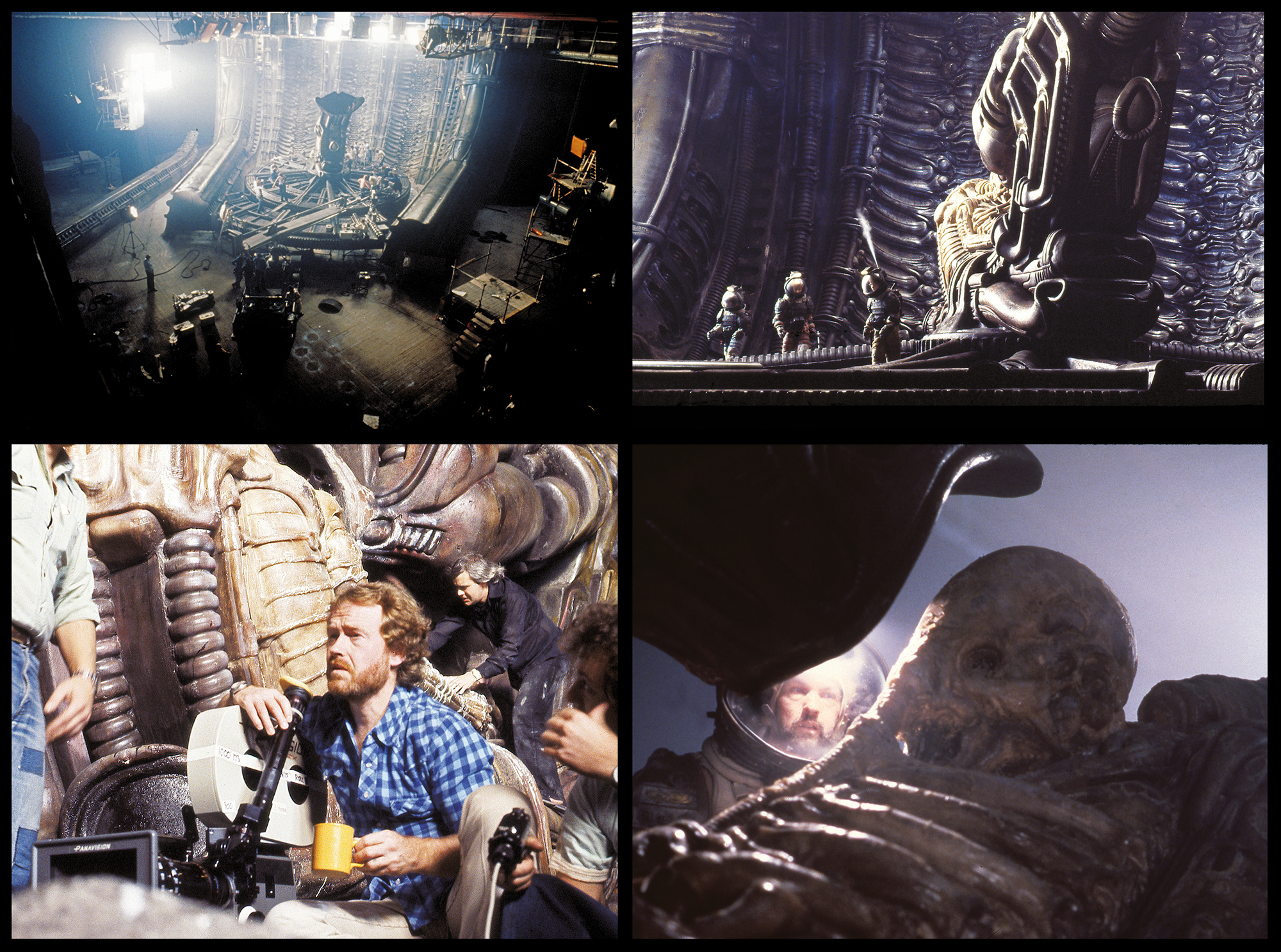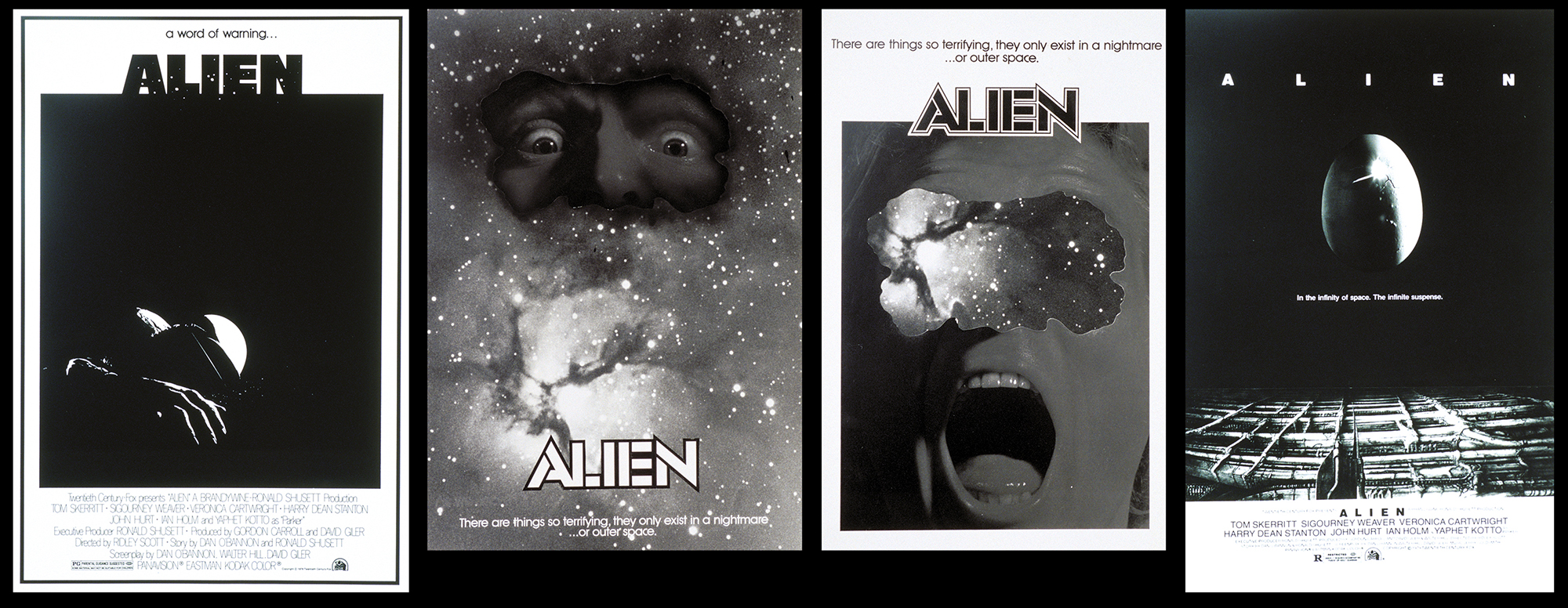One of the many jewels in Fox Studios’ crown is the Alien series, not only one of the most enduring franchises in movie history but one that has facilitated incredible visions from groundbreaking directors, including Ridley Scott, James Cameron and David Fincher. Commemorating the 40th anniversary of the original film, Titan books enlisted celebrated author J. W. Rinzler to write The Making of Alien, a definitive account of the production of the first film, featuring interviews, concept art, and dozens of never-before-seen photographs supplied by Fox and the filmmakers themselves.
The Making of Alien will be available as a San Diego Comic-Con exclusive before heading to retailers later in the month. Nerdist recently spoke with Rinzler, writer of dozens of books about Star Wars production and lore, as well as making-of tomes about Planet of the Apes and the Indiana Jones series. In addition to talking about specific process of assembling materials for Alien, Rinzler revealed a few of the exciting conversations he had that illuminated the unique production of this historic science fiction film, and reflected on both the great opportunities and challenges he’s faced in bringing these behind-the-scenes stories to life.
When you embark on one of these ‘making-of’ books, how much of the materials are immediately available to you and what’s the process of assembling them?
Every book is highly different, but I start just by reading everything I can get ahold of – books, magazine articles and lots of stuff on the internet depending on when the movie was made. And then I’d go into the Fox archives or whatever other archives I can go to, and then I just create a kind of chronology draft; if I’m lucky I have progress reports or call sheets and whatever else I can find. And then the story just kind of presents itself, and then you just plug things in and fill in the gaps. But I try not to interview anybody until I have a pretty good idea of what’s going on, so I don’t waste their time and mine.

Who was the first person that you did end up interviewing, and how do you balance period materials with more contemporary recollections that may be different or more vivid?
For Alien, it different from most books in that Steve Asbell, the production executive at Fox, had a special relationship with Ridley Scott because they’d done several movies together. Ridley Scott’s stories are kind of driving the book, so he wanted me to talk to him as soon as I could or as soon as Ridley Scott could. But then I did a bunch of research and didn’t talk to anybody else, like Terry Rawlings and Ivor Power, until I had it much better idea of what was going on.
But definitely archival stuff, stuff filmed at the time, behind the scenes stuff, I definitely give more credence to that; particularly if there’s a disagreement as to what actually happened, I’m generally going to go with the archival stuff. But sometimes, 20-30 years later, people are going to be more honest about what happened, and so in that case I privilege that material, because sometimes there’s no information and then 20 years later they actually say, well, here’s what actually happened.
Were there any instances in this book where that happened?
Well, [special effects supervisor] Brian Johnson and a crew were doing a lot of visual effects shots during the principal photography of Alien, and reading through the notes, and getting to know Ridley Scott, I kind of felt like he knew he was going to re-do the shots afterwards or a lot of them, anyway. And I asked Steve Asbell if that was true and he said, yeah, he pretty much knew. He didn’t say that they actually talked about it, but he clarified that that was sort of the plan.
Were there any older materials interviews with cast and crew or magazine pieces that provided a surprising wealth of material for the book?
There was a really good article that Cinefantastique did all about the screenplay “argument” which eventually the WGA had to settle as to who was going to get credit. And then going into the Fox archives, it’s just kind of like pulling the lever on a slot machine – you don’t know what’s going to show up – but there was some good stuff in there. There was a long memo that Peter Beale wrote, who was the Fox executive in charge over at Shepperton Studios, and then somebody gave me Peter Beale’s contact information and he consented to be interviewed, and it was the first time that anybody had spoken with him. I spoke to him for maybe two hours, all really important for the book.

The movie is such a part of the pop cultural firmament. Was there anything personally that you were kind of really excited or personally edified to discover about the movie?
Most of the stuff that I found out is new to me. But on a personal level, talking to Ridley Scott was fantastic. And also talking to Jay Canter, part of that triumvirate at Fox with him and Gareth Wigan and Alan Ladd, I felt honored to talk to him. Alan Ladd couldn’t talk, and also Ron Cobb, the great concept artist, was too ill to speak, I’m sorry to say. But his wife supplied a few images from his collection, and little things like that are very fortunate when they happen.
How was this book unique to write for you, given your pedigree?
Well, Ridley Scott was nice enough to give us a complete set of the storyboards he did while they were in preproduction. And at that point, even though he was hired, the movie was still in a zone where they could have pulled the plug; it didn’t have enough money, and it had a budget of something like $4 million. And he did these amazing storyboards and then took them to Fox from England and gave them his image of his visuals for the movie and what he saw it as, and Alan Ladd doubled the budget – which you don’t hear that happening very often. He kind of just came in and was such an amazing, visual guy, and also like certain directors, a real force of nature.
Because film sets are really difficult places to work, and I just have an enormous amount of respect for people who can pull all these disparate things together, and remain pretty much true to their vision. To the point where Peter Beale said, and this was confirmed by other people, that he literally had to come down on the last day and pull the plug, turn off the electricity, or Ridley Scott would still be out there filming it.
Is there a holy grail or pie in the sky making of book that you would love to write if you had the opportunity and access?
At Fox, I did pitch Planet of the Apes. That was a pet project I was fortunate enough to do, and that was really fun. But if I really could just pick anything, I’d probably do North By Northwest, the Hitchcock film. I would really like to do one of these kinds of books on Hitchcock and one of his great Paramount films.

